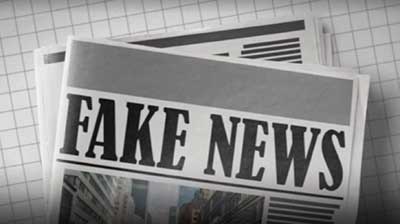Date: 20/01/2023
Relevance: GS-2: Government policies and interventions for development in various sectors and issues arising out of their design and implementation.
Key Phrases: Editors Guild of India (EGI), Information Technology Rules-2021, Press Information Bureau (PIB), fake news, press freedom, legitimate criticism, unreasonable restrictions.
Why in News?
- Expressing concern over a draft amendment made to the Information Technology Rules-2021 by the Ministry of Electronics and IT (MeitY), which empowers the Press Information Bureau (PIB) to “fact-check” contents and direct social media platforms to take down anything deemed “fake”, the Editors Guild of India (EGI) on Wednesday sought its removal.
What is fake news?
- The term fake news means “news articles that are intentionally and verifiably false” designed to manipulate people’s perceptions of real facts, events, and statements.
- It’s about information presented as news that is known by its promoter to be false based on demonstrably incorrect facts or statements or events that verifiably did not happen.
What does the proposed draft rule say?
- The latest proposal suggests that there is now potential for content takedowns because something has been flagged as fake news by the PIB.
- It says that content that has been marked as misleading by “any other agency authorized by the government for fact-checking” or “in respect of any business of the Centre” will not be allowed on online intermediaries.
- The requirement has been added under due diligence requirements that intermediaries need to follow to enjoy the safe harbour, which is legal immunity from third-party content they host.
- Intermediaries essentially allow users to access services on the internet, and the proposed changes to the rules mean that not just social media platforms but internet service providers and web hosting providers – who are all classified as intermediaries currently – will have to follow the rules if notified with this provision.
- This means that if a piece of news has been flagged as fake or false by either the PIB or any other fact-checking agency authorized by the government, internet service providers will also have to disable the link to that particular news piece.
Editors Guild of India (EGI):
- Editors Guild of India (EGI) is a non-profit organization of journalists based in India.
- The organization has declared "objectives of protecting press freedom and for raising the standards of editorial leadership of newspapers and magazines".
- It was founded in 1978.
Current fact-checking procedures:
- Social media platforms:
- Social media platforms follow their own fact-checking procedures to remove misinformation.
- However, there have been growing disagreements between them and the government about these processes and allegedly selective filtering of content.
- PIB:
- PIB’s fact-checking unit was set up in 2019 to verify news related to the government’s ministries, departments, and schemes.
- It routinely flags information about the government it believes is fake or misleading, albeit rarely explaining why it has flagged a particular piece of information.
- PIB’s fact-checking unit has itself, at times, tweeted incorrect information,
Concerns raised:
- Threat to freedom of the press:
- The EGI said the draft rule would give authority to the PIB to determine the veracity of news reports and anything termed ‘fake’ would have to be taken down by online intermediaries, including social media platforms.
- Determination of fake news cannot be in the sole hands of the government and will result in the censorship of the press.
- Already multiple laws exist to deal with content that is found to be factually incorrect.
- This new procedure serves to make it easier to muzzle the free press and will give sweeping powers to the PIB, or ‘any other agency authorized by the Central government for fact checking’, to force online intermediaries to take down content that the government may find problematic.
- More power to the government:
- The EGI said the words “in respect of any business of the Central government” seemed to give the government “complete freedom to act on its own wishes” to determine what was fake or not with respect to its own work.
- This will stifle legitimate criticism of the government and will have an adverse impact on the ability of the press to hold governments to account, which is a vital role it plays in a democracy.
- Content control:
- The Guild had raised concerns over the IT Rules when they were first introduced in March 2021, claiming that they “empower the Union government to block, delete, or modify published news anywhere in the country without any judicial oversight”.
- Various provisions in those rules had the potential to place unreasonable restrictions on digital news media, and consequently media at large.
- Need for consultation:
- The Guild urged the Ministry to initiate consultations with press bodies, media organizations, and other stakeholders, on the regulatory framework for digital media, “so as to not undermine press freedom”.
Conclusion:
- Currently, “fake news” is more and more viewed as part of transnational information warfare and hybrid wars.
- The government is looking for additional concerted efforts to counter this wide-spreading activity.
- But with the concerns raised by the media houses regarding press freedom, the government needs to take a wider consultation approach with all the stakeholders and include them in the process of fact-checking platforms so that it will instil their confidence in the fairness of the process.
Source: The Hindu
Mains Question:
Q. What are the causes and consequences of the spread of fake news through social media? Suggest some measures to curb this menace.(250 words).






















